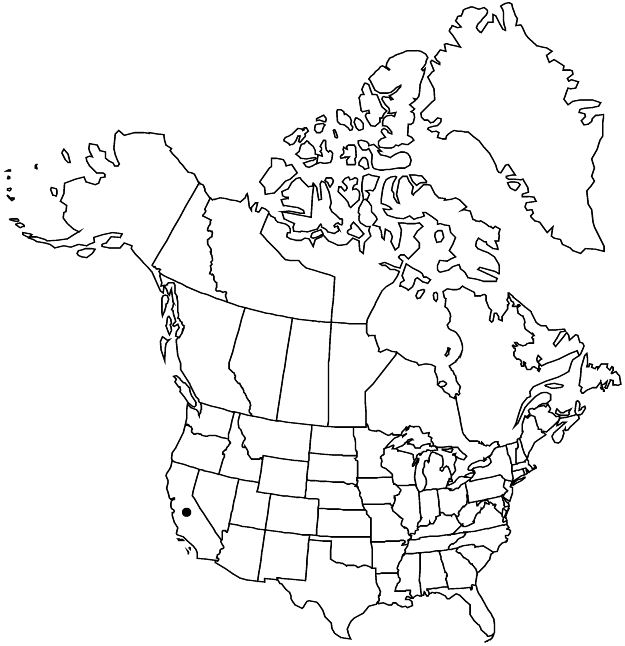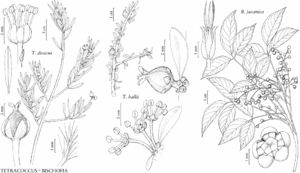Tetracoccus dioicus
W. Amer. Sci. 1: 13. 1885.
Shrubs to 2 m. Leaves subopposite, opposite, or whorled, not clustered on short-shoots; blade oblong or oblanceolate to linear, 20–30 × 1–4 mm, base obtuse to cuneate, margins entire or remotely serrulate, apex obtuse to acute. Inflorescences: staminate sparingly branched racemelike thyrses, to 20 mm; pistillate flowers solitary. Pedicels: staminate present; pistillate 6–15 mm, glabrous. Staminate flowers: sepals 6–10; stamens 5–10, filaments villous basally. Pistillate flowers: sepals 7–13, in 1 series (sometimes subequal sepals alternate), red, 3–5 mm, glabrate abaxially, minutely sericeous-tomentose adaxially; pistil usually 4-carpellate, 3 mm, crisp-tomentose. Seeds (1–) 2 per locule, glossy brownish red, oblong, 4–5 mm, usually with one flattened radial surface, smooth; caruncle present.
Phenology: Flowering Mar–Jun and sporadically year-round.
Habitat: Coastal chaparral and coastal scrub.
Elevation: 100–700 m.
Distribution

Calif., Mexico (Baja California)
Discussion
Tetracoccus dioicus is found in the flora area in Orange and San Diego counties.
Selected References
None.
